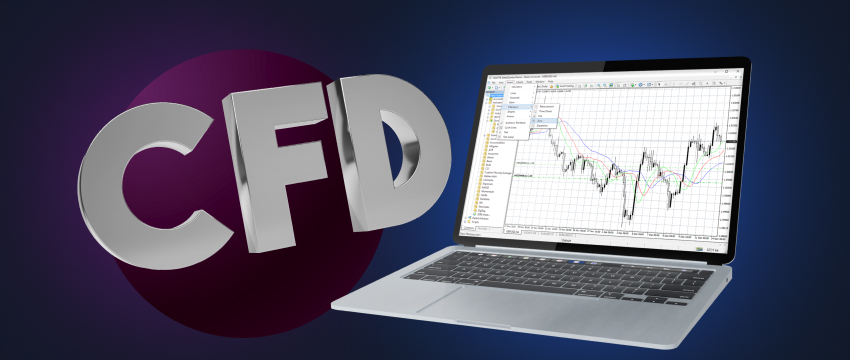In forex trading, the ability to understand the numerous currency pairs is a core component of successful strategies. While the major currency pairs like EUR/USD, GBP/USD and USD/JPY get most traders’ attention. Because of their high liquidity and volume. But there is another category known as minor currency pairs. While these pairs may not be as popular as the major ones. They do remain an integral part of the forex market.
What are minor currency pairs?
Minor currency pairs, i.e. cross currency pairs or crosses, are those that do not include the US Dollar (USD). For instance, EUR/GBP, AUD/JPY and GBP/JPY are minor currency pairs.
Features of minor currency pairs
- Less Liquidity: Minor currency pairs generally have lower trading volumes and less amount of liquidity than major currency pairs. This tighter liquidity can lead to wider bid-ask spreads, making them potentially more volatile and less predictable.
- Higher spreads: Because of this, brokers might charge a larger spread for trading minor currency pairs with less liquidity. Traders should take into consideration these spreads to guarantee their profitability when executing trades.
- Unique trading dynamics: Every minor currency pair has its own distinct trading dynamics. Which are caused by the economies of the countries participating in the trade. Factors like rates of interest, economic indicators, geopolitical developments and commodity prices. That can bring about changes in exchange rates of minor currency pairs. We will elaborate further on this below.
Importance of minor currency pairs
- Increased volatility: The higher volatility and wider spreads that minor currency pairs have, can lead to a higher risk for the traders. The traders should undertake extensive analysis and adopt appropriate risk management measures when trading these pairs.
- Diversification: Trading minor currency pairs presents traders with an option of diversifying their portfolios beyond the major currency pairs. The diversification might help to reduce the risk and, consequently, improve performance.
- Opportunities for profit: Despite being less liquid, minor currency pairs can also offer profitable trading opportunities for experienced traders. The high volatility may provide for greater price movements . Offering opportunities for profits as long as the direction can be correctly forecasted.
- Global market exposure: The process of trading minor currency pairs implies examining a wider selection of global economies and markets. For traders who aim to exlore specific trends or events outside the major currency zones, this alignment can be very useful.

Factors that impact minor currency pairs
EUR/GBP (Euro/British Pound):
It is the euro-pound exchange rate. It is closely related to the economic developments within the Euro area and the United Kingdom in particular.
The EUR/GBP exchange rate is affected by the following economic figures and events that occur in the Eurozone and the UK.
- Monetary policy: Decisions on interest rates and quantitative easing by the European Central Bank (ECB) and the Bank of England (BoE) can affect the value of the euro and the pound accordingly.
- Economic performance: Various economic indicators like GDP growth, unemployment rates, inflation and trade balance affect the sentiment of investors towards the euro and the pound.
- Political developments: Brexit-related developments, elections and other political events that may affect political stability can significantly influence the EUR/GBP exchange rate.
AUD/JPY (Australian Dollar/Japanese Yen):
Shows the rate of exchange between the Australia dollar and Japanese yen. Factors like prices of a commodity, rates of interest and the economic health of Australia and Japan influence this currency pair.
- Commodity prices: Commodity exports play a major role in the Australian economy, particularly minerals and energy products. Volatility of commodity prices, including gold, iron ore, and oil, may cause changes in the value of the Australian dollar.
- Interest rate differentials: Different interest rates set by the Reserve Bank of Australia (RBA) and the Bank of Japan (BoJ) determine the attractiveness of holding Australian dollar-denominated assets versus yen-denominated assets which in turn affect the AUD/JPY exchange rates.
- Risk sentiment: AUD/JPY is a currency pair that is sensitive to risk and often reacts to shifts in global risk sentiment and the demand for riskier assets from investors. Variables like geopolitical tensions, economic instability, and market volatility can move the currency pair.

GBP/JPY (British Pound/Japanese Yen): Shows the exchange rate between the Pound Sterling and the Japanese Yen. It is famous for its volatility and is often affected by risk mood in financial markets.
- Risk appetite: Like AUD/JPY, the GBP/JPY pair is very sensitive to fluctuations in global risk sentiment. In times of risk aversion, investors may prefer safe-haven assets like the Japanese yen, which could push the GBP/JPY pair lower.
- Economic data: Economic factors including GDP growth, inflation, unemployment data and consumers’ spending in both the UK and Japan may affect investors‘ confidence and influence the trend of GBP/JPY.
- Bank of England and Bank of Japan policies: The monetary policy decisions and the statements made by the Bank of England and the Bank of Japan, such as interest rate changes, quantitative easing programs and forward guidance, have a strong influence on the pound and the Japanese yen respectively.
Trading minor pairs effectively
When trading minor currencies, traders must take into account further factors to manage their trading goals more effectively.
Liquidity and costs
Minor currency pairs, as opposed to major pairs, usually have lower liquidity which results in wider bid-ask spreads. Traders have to keep spreads in mind as they directly affect transaction costs. It is crucial to choose brokers that offer competitive spreads for minor pairs. It’s also important to be very careful during periods of low liquidity such as market opening/closing and major holidays.
Volatilité
The volatility of minor currency pairs is higher as they have lesser liquidity and they may see sharp price movements. Traders need to adopt risk management tools, for example stop-loss and take-profit orders, which will help to protect their capital in cases where the market is unpredictable. Furthermore, position sizing should be altered to reflect the higher volatile minor pairs.
Formation
Gaining familiarity with economic fundamentals and geopolitical developments in the countries whose currencies you’re trading is important. For example, interest rate decisions, GDP growth, inflation rates, political stability and geo-political tensions can affect the exchange rates significantly. Traders should be aware of any news and economic indicators that can influence the currencies involved in minor pairs so they can act in a timely manner.
Technical analysis
Technical analysis provides a basis for trading minor currency pairs as it allows traders to identify trends, support/resistance levels, and potential entry/exit points. Traders are likely to use different technical indicators, charts, and trading strategies that are appropriate for minor currency pairs. The ideal approach is to adapt trading strategies to the special dynamics of each currency pair and to perform a thorough analysis before implementing trades.

Trading minor pairs with T4Trade
Trading minor currency pairs with T4Trade offers traders the opportunity to diversify their portfolios and capitalise on trading opportunities in the forex market. T4Trade is a reputable online brokerage firm that provides access to a wide range of currency pairs, including major, minor, and exotic pairs, along with comprehensive trading tools and resources to support traders’ needs.
Trading minor pairs with T4Trade
Diverse range of currency pairs
Trading minor pairs with T4Trade provides diversification in currency trading, and will allow you to discover opportunities that are beyond the traditional major currency pairs. Traders can trade EUR/GBP, AUD/JPY, and GBP/JPY to diversify their trading strategies and explore unique market dynamics.
Competitive spreads and low fees
T4Trade has competitive spreads and low trading fees, which makes it an affordable trading platform for traders trading minor currency pairs. Reduced spreads allow traders to manage their trades better and gain more profits.
Advanced trading platforms
T4Trade provides traders with sophisticated platforms, which are equipped with robust trading tools including indicators and executing options. Whether traders opt for the user-friendly T4Trade Web Trader app or the customisable MetaTrader 4 (MT4) platform, they can access live market data, technical indicators and charting tools that helps them to make informed trading decisions.
Ressources pédagogiques
T4Trade provides trading education including podcasts, eBooks, webinars and Live TV to help traders boost their experience in trading as well as remain updated about news affecting FX and minor currency pairs.
Responsive customer support
T4Trade’s customer support is always online to help traders with any questions about trading or technical problems they may encounter while trading minor pairs. With responsive customer support such as live chat and email, traders can get prompt assistance whenever they require it.
CLAUSE DE NON-RESPONSABILITÉ : Ces informations ne sont pas considérées comme des conseils ou des recommandations d'investissement, mais plutôt comme une communication marketing.




